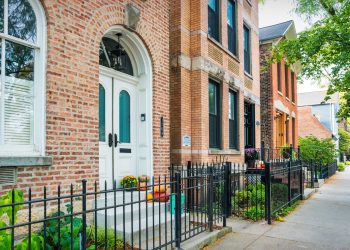A new industry report that examined how someone’s education level influences their chance at homeownership in the U.S. shows that despite the costs associated with college and growing student loan debt, a degree is a stepping stone to eventually becoming a homeowner.
The report, by Point2 real estate search portal, found that in 2020, there were 18% more bachelor’s degree holders compared to 2010, while the share of high school graduates dipped by 8% during the same timeframe. Consequently, the share of owners with at least a high school diploma rose as well.
Although there are 4% fewer owned homes in the United States than there were in 2010, an increasing share belongs to highly educated people. And, with Millennials cementing their status as a driving force during the last decade, the life priorities of this pragmatic generation are reflected in the socio-economical makeup of today’s United States.
Compared to Baby Boomers and Gen Xers, Millennials are more prone to postponing traditional life decisions—like starting a family and buying a house—in favor of gaining education and financial independence first, the report stated.
So, the report finds, while factors such as mortgage fluctuations or housing market volatility may explain the nationwide inability to own a home, this generational shift could answer for the increased ability of those with a degree.
Additional key findings:
- 70% of all homeowners in the United States have a degree: 40% have at least a bachelor’s, while 30% have some college or an associate degree.
- More than 80% of those with a degree in education, industry/technology, and agriculture are likely to own a home compared to just over 65% of IT/mass media grads and art grads.
- Washington, D.C. has the No. 1 highest share of homeowners with at least a bachelor’s degree (76%) despite having the lowest percentage of owner-occupied homes overall (43%). It’s also the place where bachelor’s degree holders earn the highest income ($71,850).
- Massachusetts, home to several reputable high education institutions, takes No. 2 with the most homeowners to have a bachelor’s or a higher degree (53%).
- West Virginia has the largest share of owner-occupied homes (74%), yet the smallest share of homeowners with a bachelor’s degree (25%).
- Wyoming has the most homeowners with some college or an associate degree (38%), despite being among the states with the fewest colleges in the U.S.
The takeaway:
“Overall education levels are rising, but housing is also becoming more expensive, particularly in some markets,” said Randal Ice, Barnabas professor of finance at the
University of Central Oklahoma. “As education is closely correlated to income, the higher the prices get, the more the poorly educated are locked out of the market and forced to rent. Of course, this has other impacts, including less lifetime wealth and more frequent relocations among renters.”
“Whether or not the trend continues depends primarily on two forces: the labor market and the housing market,” said Carly Urban, associate professor of economics at Montana State University. “The value of and return to a college degree, even with rising costs, are high. However, the current tight labor market has pushed employers to reduce education requirements in some job descriptions. Reducing barriers in job postings further helps to recruit diverse candidates. If the labor market no longer rewards college degrees at the same rate, homeownership may become more accessible for those who end their education with a high school diploma.
“At the same time,” Urban concluded, “house prices are hitting record highs in some areas. That means even with expanded opportunities for those with less education, the income levels required to buy the limited supply could be a stretch. While house prices are likely to level back off in the next decade, affordability for those earning less will require a larger drop in prices in many markets cross-country.”
To read more expert analysis and see the full report, visit https://www.point2homes.com/news/us-real-estate-news/homeownership-by-education-us.html.












